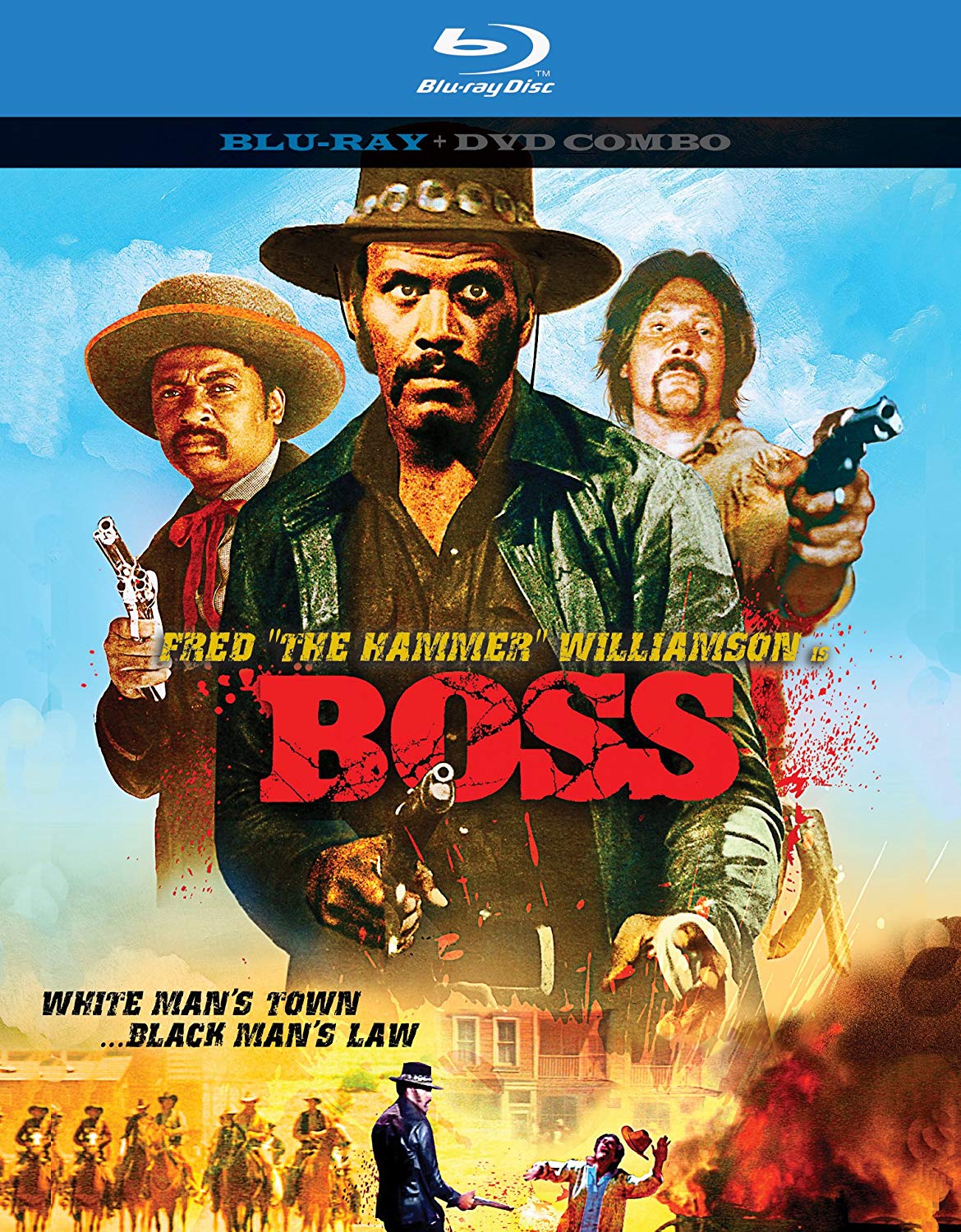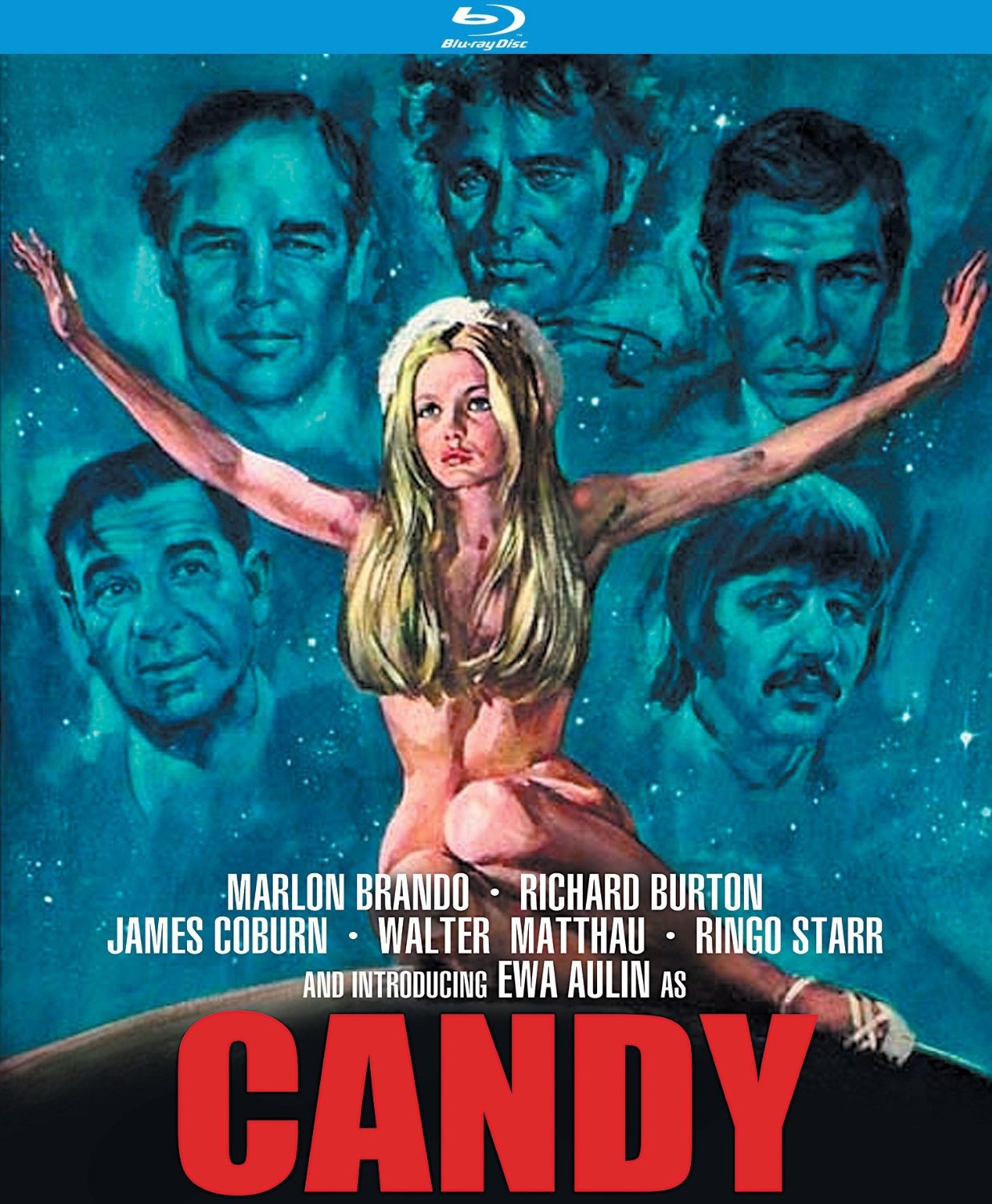Late 19th century, and a pair of tough Negro bounty hunters discover that the town of San Miguel has invited a murderous gunfighter to be their new sheriff, so they seize the opportunity– against the strong objections of the crooked mayor and his cronies – to set themselves up as the new law in town. Our two heroes are Fred Williamson, dressed all in black, and D’Urville Martin, his sharp-dressed sidekick; the only townspeople who don’t hate them are the blacksmith, the schoolmarm (who seems to blush and breath heavily whenever she spies the Hammer), the aged doctor (Red Barry, in one of his last roles) and anybody who isn’t white. William Smith is the desperado who controls the mayor that controls the town, and the guy who directed Creature from the Black Lagoon and Tarantula controls everybody, from a 28-page script by Williamson.
I suspect not too many people would point to Boss as an example of a GOOD movie, but as a low-budget mid-1970s western Blaxploitation drive-in movie that owes nearly everything to the previous year’s Blazing Saddles, it’s better than we had any right to expect. It couldn’t deliver the laughs of Mel Brook’s monster hit, so it added action, took a stab at social commentary, and delivered The Man in Black actually BEING Black for once (see the poster for the original title of the film, which is reflected in the film’s opening credits as well as the inner version of the reversible disc cover).
It might be easy to criticize the wildly fluctuating tone of the film, from comedy to violence (pretty grim violence at times) to outright horror (what happens to a little boy is a killer) to half-hearted attempts at romance with Williamson matched with both the schoolmarm and a young black woman rescued early in the film, but I’ve seen too many exploitation films of the ‘70s to not understand that the general idea was to toss everything at the drive-in wall and see what could stick and I suspect that the film was an audience pleaser; Williamson – already a certified star in such films as That Man Bolt, Black Caesar, and Hell Up in Harlem - is credited as writer and co-producer for the first time and he’s plenty good in this: even today’s audiences will respect what he was accomplishing nearly a half-century ago in the low-budget movie trade.
Million-dollar Dialog:
On being a black bounty hunter: “Y’all have been hunting black folks for so long, we just wanted to see what it felt like hunting white folks.”
The score for Blaxploitation films was often the best part; Leon Moore (who?) delivers music that’s more Shaft than The Searchers but it’s not very good, and the title song is a bust. So that leaves us with an impressive hero and William Smith terrific as his nemesis; the bonus materials on the disc explain that they had a lot of trouble finding an actor who looked like he could go toe to toe with the Hammer, and they found one.
The Blu-ray is a real surprise, a virtually perfect encoding of a low-budget 1970s drive-in movie. I can't imagine a better edition of this particular film, which includes a long interview with Williamson and a few short featurettes.
The film is obviously no great classic, but as 1970s Blaxploitation films run, it's a good one.



